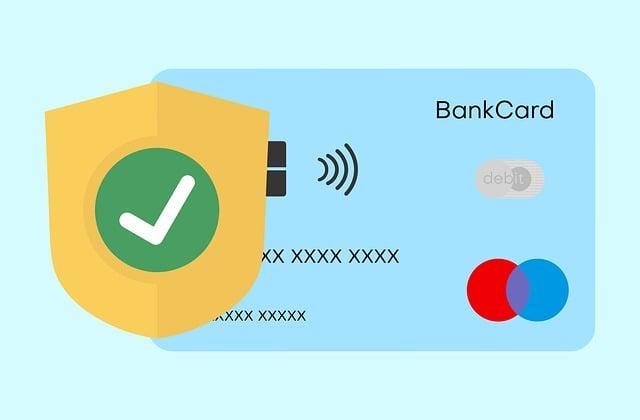- Introduction
- Understanding Gift Card Scams
- Common Types of Gift Card Scams
- Red Flags to Watch Out For
- Protecting Yourself from Scams
- Conclusion
- FAQs
Introduction
In today's digital world, gift cards have become one of the most popular payment methods. However, this convenience has also attracted scammers who exploit unsuspecting individuals. This article will explore various aspects of gift card scams in 2024, including understanding the nature of these scams, identifying common types, recognizing red flags, and steps you can take to protect yourself against these deceptive practices.
Understanding Gift Card Scams

(Image: Pixabay/@geralt)
Gift card scams often involve tricking victims into buying gift cards and providing the card numbers and PINs to the scammer. The perpetrators typically use sophisticated tactics that prey on emotions such as fear and urgency, making it crucial to understand how these scams operate.
Many scams masquerade as official communications from well-known companies like Amazon, Walmart, or even government agencies. Victims may receive phone calls, emails, or texts claiming that urgent action is needed—often alleging that their accounts are compromised or that they owe money. The scammers create a false sense of urgency, prompting victims to act quickly without verifying the legitimacy of the claims.
One of the key tactics used by scammers is impersonation. They may pose as customer service representatives or local authorities, leveraging trust to manipulate potential victims. Furthermore, the anonymity of digital transactions can make it difficult for victims to trace back their losses once a scam occurs.
In 2024, as more people rely on online shopping and electronic transactions, awareness of gift card scams is more vital than ever. Understanding these scams is the first step in protecting yourself from becoming a victim.
Common Types of Gift Card Scams

(Image: Pixabay/@geralt)
Scammers employ various methods when perpetrating gift card fraud. Below are some of the most common types of gift card scams you should be aware of:
1. **Tech Support Scams**: In these scams, individuals receive unsolicited calls from scammers claiming to be technical support representatives. They often state that your computer has been compromised or is infected with malware and request payment via gift cards for services rendered. Victims frequently feel pressured to comply, thinking they are addressing a legitimate issue.
2. **Impersonation Scams**: Scammers often impersonate family members or friends who claim they are in an emergency situation and need money urgently. They may send messages over social media or texts asking for gift cards, which they promise to repay later. The emotional manipulation can make it hard for victims to see through the deception before it's too late.
3. **Fake Job Offer Scams**: Some scammers lure victims with enticing job offers. After a brief conversation, they may ask for payment for various "onboarding" processes, typically requesting these payments in the form of gift cards. Once payment is made, the job offer disappears, along with any communication from the scammer.
4. **Online Marketplace Scams**: In online marketplaces, scammers misrepresent items for sale and ask for payment in gift cards. Once the victim sends the payment, they never receive the item, and the scammer vanishes into thin air. Always be cautious of offers that seem too good to pass up; they often are.
Red Flags to Watch Out For

(Image: Pixabay/@geralt)
It’s essential to recognize the signs that may indicate a potential scam. Here are several red flags to watch out for:
1. **Unsolicited Communication**: Be wary of unexpected calls, messages, or emails, especially if they demand urgent action. Legitimate organizations rarely ask for payment in gift cards or request sensitive information directly over the phone or via email.
2. **Pressure Tactics**: Scammers often create a false sense of urgency—implying you must act quickly to avoid consequences. If someone pressures you to pay a debt or claim a prize immediately, it’s likely a scam.
3. **Requests for Gift Cards**: Understand that reputable businesses will not ask for payment in gift cards. If someone insists on this method, it is a significant warning signal that it could be a scam.
4. **Poor Spelling and Grammar**: Many scammers operate from regions where English is not the first language. Emails or messages that contain spelling errors or awkward language can alert you to a potential scam.
Protecting Yourself from Scams

(Image: Pixabay/@kreatikar)
Protecting yourself against gift card scams requires vigilance and proactive measures. Here are some strategies you can implement:
1. **Educate Yourself and Others**: Awareness is the first line of defense. Educate yourself about the mechanics of gift card scams and share this knowledge with friends and family to help them stay informed and alert.
2. **Use Secure Payment Methods**: Avoid using gift cards for any transactions unless you are certain about the legitimacy of the recipient. Use credit cards or well-known payment services that offer buyer protection.
3. **Verify Requests**: Always take a step back and verify any requests for payment coming from individuals or organizations. If you receive a message from someone claiming to be a friend or family member in trouble, reach out to them directly through another means to confirm their story before taking any action.
4. **Report Suspected Scams**: If you encounter suspicious activity, report it to the relevant authorities immediately. Websites like the Federal Trade Commission (FTC) provide resources for reporting scams. Reporting helps protect others from falling victim to similar scams.
Conclusion
Gift card scams are on the rise, continuing to evolve and adapt to current trends. Vigilance and knowledge are essential tools in protecting yourself and your loved ones from these deceptive schemes. By staying informed about the tactics scammers use, recognizing red flags, and implementing protective measures, you can significantly reduce the risk of becoming a victim. Remember, if something feels off, don’t hesitate to double-check and verify before taking any action.
FAQs
What should I do if I think I've been scammed?
If you suspect you have fallen victim to a gift card scam, contact the retailer immediately to see if they can assist or possibly reverse any charges. Report the incident to your local law enforcement and the Federal Trade Commission (FTC). The sooner you act, the better chance you have to potentially recover your loss.
Are all gift cards scams?
No, not all gift card transactions are scams. Gift cards are a legitimate and widely-used payment method. However, scams become a concern mainly when individuals are coerced into purchasing them under false pretenses.
How do I identify a legitimate business?
Research online about a business before engaging in any transactions. Look for reviews, check their official website for contact details, and confirm their legitimacy through consumer advocacy sites if uncertain.
Can scammers steal my information through gift card transactions?
Yes, scammers can use gift card numbers and PINs for fraudulent purchases, leading to financial loss. They typically solicit this information directly from victims, so never share your gift card details without verified trust.
What are some safe alternatives to gift cards?
Consider using credit cards that offer fraud protection or secure payment services like PayPal for online transactions. These options can offer additional layers of security compared to gift cards.

